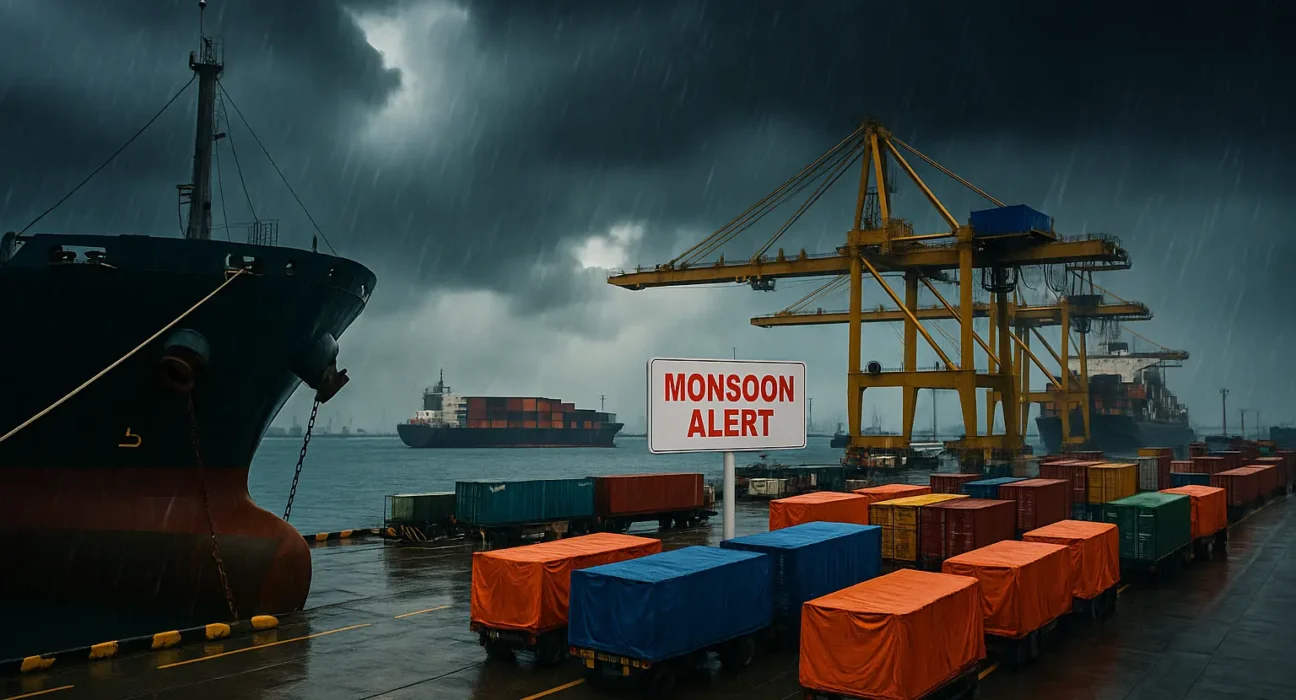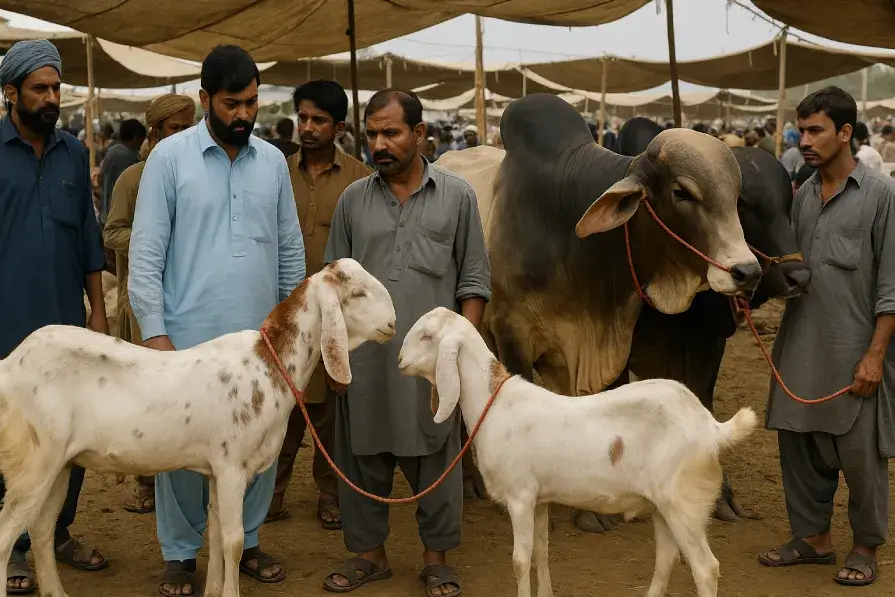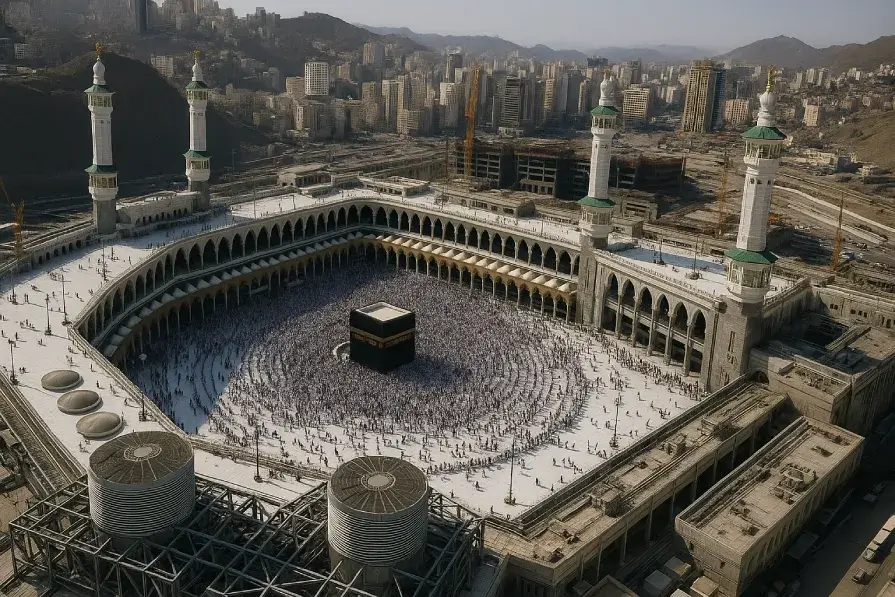Karachi Port Declares High Alert Ahead of Heavy Monsoon Rains

The Karachi Port Trust (KPT) has issued a high alert because it expects heavy monsoon rains to hit the city’s important trading hub. Since there are warnings of extreme weather headed for Karachi in a few days, KPT has activated its emergency plan to secure the port, cargo and its workers.
The government has made the choice because there are increasing worries that the monsoon could create difficulties for ships and endanger citizens and property in the port.
Vessels Secured and Services on Standby
KPT officials confirmed all vessels currently in the harbour are securely docked at safe berths. Meanwhile, pilots and tugboat teams are keeping a close eye, ready to take ships into deeper waters if tornadoes or severe winds are predicted.
Vulnerable small boats are now being shifted to secure low-risk areas to help prevent damage and accidents.
To reduce the possibility of problems, dredgers, barges and critical marine equipment have been secured tightly.
Learn More: Punishing the Honest: Why Pakistan’s Tax System Needs Urgent Reform
Cargo Protection in Full Swing
Cargo handling areas have been paid particular attention. To avoid problems with water damage and winds, KPT has wrapped vehicles, appliances and sensitive goods in waterproof tarpaulins. All containers have been put in two high stacks so they are less likely to fall because the wind is blowing.
Both port terminals and container yards have introduced strict security measures, excluding access to dangerous areas and increasing the watch over storage sites.
Drainage, Gas Safety, and Structural Checks
Personnel have focused a lot on improving cargo handling areas. The company has used waterproof tarpaulins to protect vehicles, appliances and valued goods from water damage and strong winds. The containers are stacked as high as two on the ground so the wind doesn’t push them over as easily.
Both the port and the container yards now limit access to unsafe areas and watch storage sites more closely.
Learn More: Lahore Qalandars Crowned PSL Champions for the Third Time
Power Continuity and Medical Readiness
Blackouts often follow storms, so KPT is ready to support power outages. Izhar Abbasi KPT Hospital already has backup generators in use, as do other sensitive establishments. They have guaranteed emergency medicine and protocols to supply electricity any time, every day during the emergency period.
Each critical team member has been equipped with portable lights, satellite phones and similar devices to help them coordinate with different departments at any time.
Emergency Response Teams Deployed
The KPT Civil Defense Unit is now responding to the threat. To ensure a quick response in a crisis, ambulances, doctors/nurses, pumping equipment and first-aid supplies are part of each team’s equipment.
All fire hydrants located on port property have been put through testing, and the Port Fire Officer placed firefighting equipment where it can be reached quickly. We have practised fire safety drills to review everyone’s skills and speed.
Public Assurance and Operational Continuity
KPT has told stakeholders that ports will operate even under extreme weather.
All import/export is handled now with greater security measures in place. Officials acknowledged that there might be holdups in moving goods on and off ships due to changing weather, but work is continuing to avoid delays for traders.
Environmental Risk Management
Rain from the monsoon season disrupts transportation and, at the same time, adds environmental issues. The protection of the environment is being looked after by KPT’s safety team.
Oil spills could happen.
Marine waste is overflowing everywhere.
Garbage in the drain is one cause of clogs.
Garbage disposal companies have been ordered to prevent spills of plastic and oil in any open areas.
Collaboration with Meteorological and Naval Agencies
Staying on top of any new weather developments, KPT is cooperating with both the Pakistan Meteorological Department and the Pakistan Navy. Every day reports on the weather are integrated into our emergency system, and the decision-making staff is on call continuously.
Members of the KPT organization work in this way to predict storms correctly and make relevant preparations.
Conclusion
Because of the approaching rainy season, the high alert status at KPT proves that crisis management in Karachi is planned and efficient. Because the Karachi Port has moved important cargo, has secured its vessels, is clear of stormwaters, operates fully equipped medical clinics and is ready with emergency responders, it stands a better chance of facing the storm.
It’s not limited to protecting buildings and goods; disaster planning aims to preserve lives, the economy and trust in government support.









